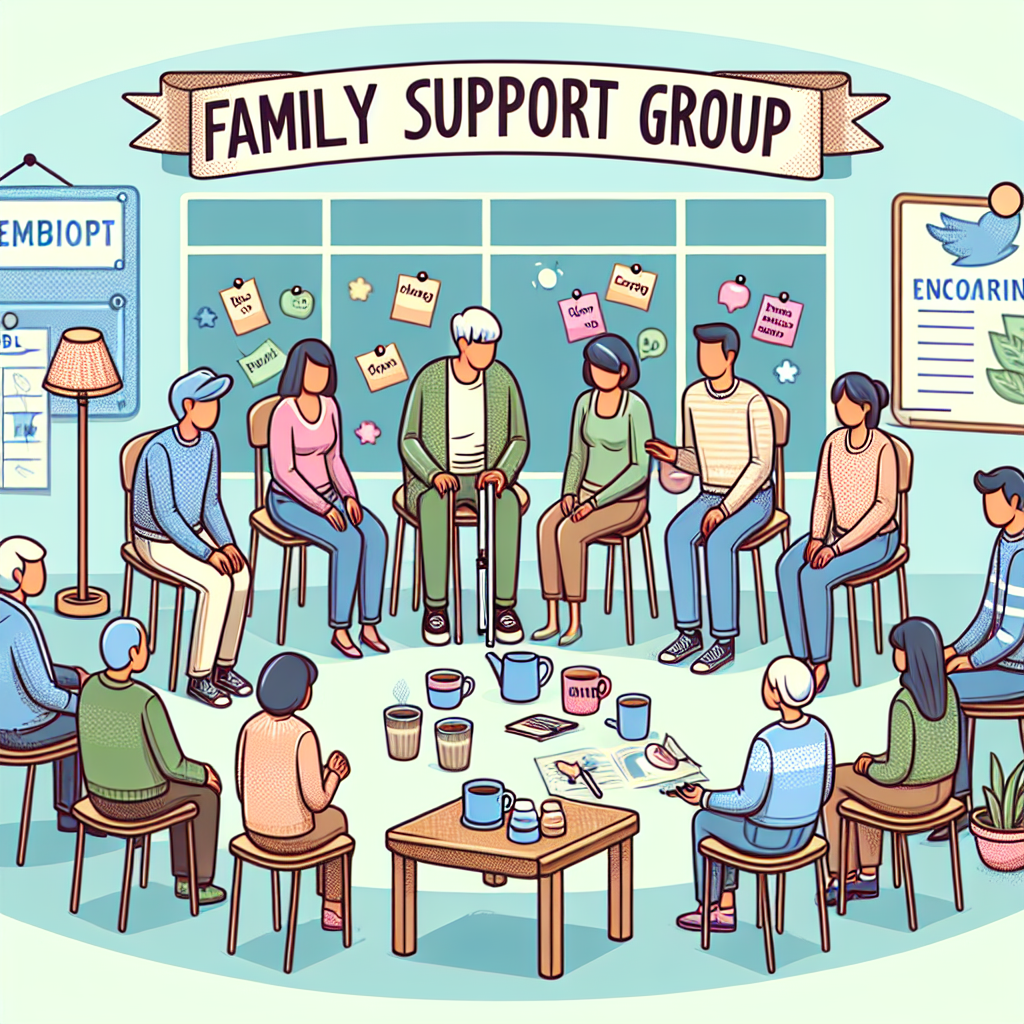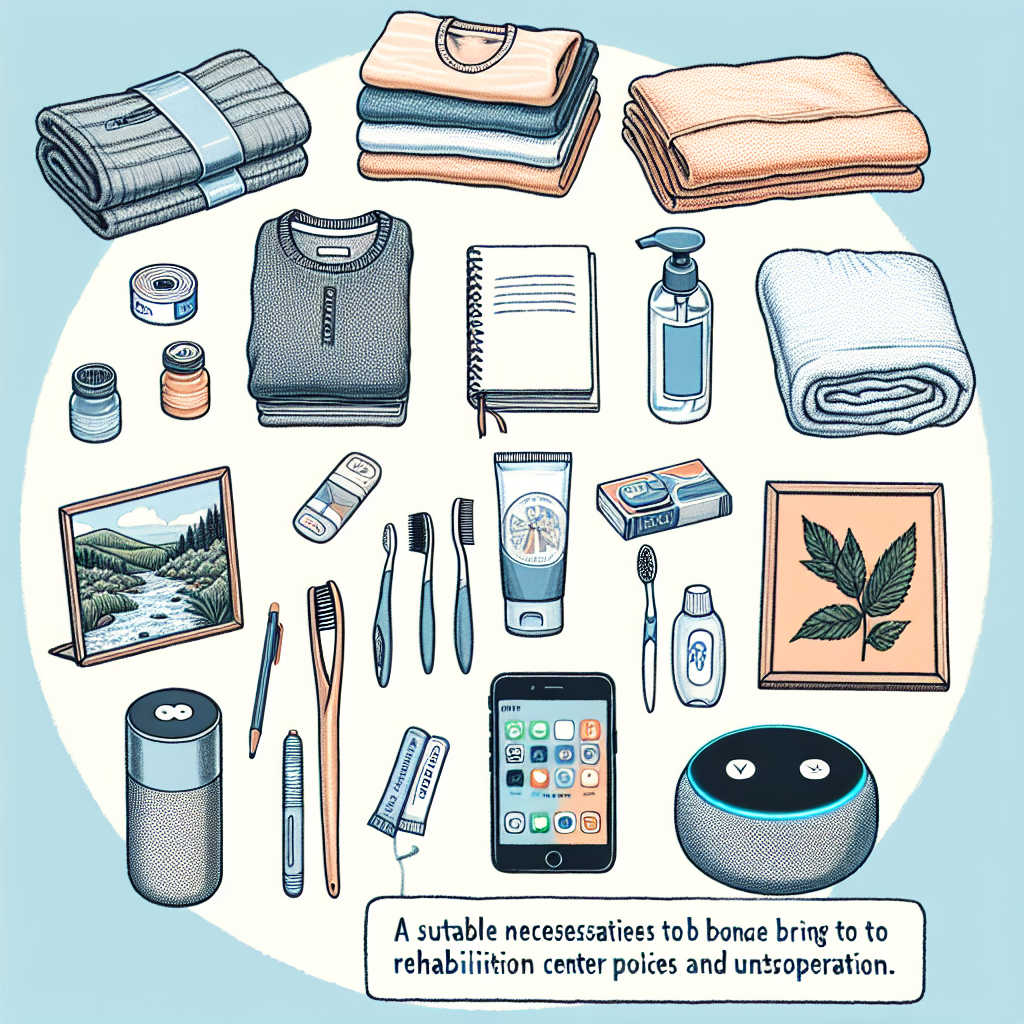-
Table of Contents

“Strength in Unity: Family Support Fuels Recovery in Cocaine Rehab”
Introduction
Family support plays a crucial role in the rehabilitation process for individuals recovering from cocaine addiction. The journey to sobriety is often fraught with emotional, psychological, and physical challenges, and having a strong support system can significantly enhance the chances of successful recovery. Family members provide emotional encouragement, help maintain accountability, and create a stable environment that fosters healing and growth. Their involvement can also bridge the gap between the individual and professional treatment services, ensuring that the person in recovery adheres to their rehabilitation plan. Additionally, family support can mitigate feelings of isolation and stigma, which are common barriers to recovery. By participating in therapy sessions, educational programs, and support groups, families can better understand the complexities of addiction and learn effective ways to support their loved one. Ultimately, the collective effort of a supportive family can be a powerful catalyst for lasting change and a healthier, drug-free life.
The Role Of Family Support In Enhancing Cocaine Rehab Success
Family support plays a crucial role in enhancing the success of cocaine rehabilitation, offering a foundation of emotional stability and practical assistance that can significantly influence recovery outcomes. When an individual embarks on the challenging journey of overcoming cocaine addiction, the presence of a supportive family can make a world of difference. This support manifests in various forms, from emotional encouragement to active participation in therapy sessions, all of which contribute to a more holistic and effective rehabilitation process.
One of the primary ways family support aids in cocaine rehab is through emotional encouragement. The journey to sobriety is often fraught with emotional highs and lows, and having a family that provides unwavering support can help the individual navigate these turbulent times. Knowing that loved ones believe in their ability to overcome addiction can bolster the individual’s self-esteem and motivation, which are critical components of successful recovery. This emotional backing can also reduce feelings of isolation and loneliness, which are common among those battling addiction.
In addition to emotional support, families can play an active role in the rehabilitation process by participating in therapy sessions. Family therapy is a common component of many rehab programs, as it addresses the dynamics within the family that may contribute to the addiction. By engaging in these sessions, family members can gain a better understanding of the challenges their loved one faces and learn how to provide more effective support. This collaborative approach not only helps the individual in recovery but also strengthens family bonds, creating a more supportive home environment.
Moreover, family support can extend to practical assistance, which is often overlooked but equally important. This can include helping with daily responsibilities, such as childcare or household chores, allowing the individual to focus more fully on their recovery. Additionally, families can assist in managing appointments, transportation, and other logistical aspects of the rehab process. By alleviating some of these practical burdens, families enable their loved ones to concentrate on their treatment and personal growth.
Furthermore, the role of family support in relapse prevention cannot be overstated. The period following rehab is critical, as the risk of relapse is high. Families can help by creating a stable and drug-free environment, which is essential for maintaining sobriety. They can also encourage healthy lifestyle choices, such as regular exercise and balanced nutrition, which contribute to overall well-being and reduce the likelihood of relapse. By staying vigilant and supportive, families can act as a first line of defense against the temptations and triggers that may lead to a return to cocaine use.
Inspiringly, many success stories in cocaine rehab highlight the transformative power of family support. Individuals who have successfully overcome addiction often credit their families for providing the strength and encouragement needed to persevere through the toughest moments. These stories serve as a testament to the profound impact that a loving and supportive family can have on the recovery process.
In conclusion, family support is an indispensable element in the journey to overcoming cocaine addiction. Through emotional encouragement, active participation in therapy, practical assistance, and relapse prevention, families provide a comprehensive support system that enhances the chances of successful rehabilitation. By fostering a nurturing and understanding environment, families can help their loved ones not only achieve sobriety but also build a foundation for a healthier and more fulfilling life.
How Family Involvement Can Accelerate Recovery In Cocaine Rehabilitation
Family involvement can play a pivotal role in accelerating recovery during cocaine rehabilitation. The journey to overcoming addiction is often fraught with challenges, and having a supportive family can make a significant difference in the outcome. When family members actively participate in the rehabilitation process, they provide emotional support, create a stable environment, and help reinforce the positive changes necessary for long-term recovery.
One of the primary ways family support aids in recovery is through emotional encouragement. Addiction can be an isolating experience, leaving individuals feeling alone and misunderstood. When family members show empathy, understanding, and unconditional love, it can boost the individual’s morale and motivation to stay committed to their recovery goals. This emotional backing can be particularly crucial during moments of doubt or relapse, offering a safety net that helps the individual get back on track.
In addition to emotional support, family involvement can contribute to creating a stable and structured environment, which is essential for recovery. A chaotic or stressful home life can trigger cravings and relapse, whereas a calm and supportive household can provide a sense of security and predictability. Families can help by establishing routines, setting boundaries, and encouraging healthy habits that promote sobriety. This structured environment can serve as a foundation upon which individuals can rebuild their lives, free from the chaos of addiction.
Moreover, family members can play an active role in the rehabilitation process by participating in therapy sessions and educational programs. Many rehabilitation centers offer family therapy as part of their treatment plans, recognizing the importance of addressing the dynamics that may contribute to addiction. Through these sessions, families can learn about the nature of addiction, develop better communication skills, and work through any underlying issues that may have fueled the substance abuse. This collaborative approach not only helps the individual in recovery but also strengthens family bonds, fostering a more supportive and understanding relationship.
Furthermore, family involvement can help reinforce the positive changes that individuals make during rehabilitation. Recovery is not just about abstaining from drug use; it involves adopting a new lifestyle and mindset. Family members can support these changes by encouraging healthy activities, such as exercise, hobbies, and social engagements that do not involve substance use. They can also help the individual set and achieve personal goals, providing a sense of purpose and direction that is vital for long-term recovery.
In addition to these direct benefits, family support can also have a ripple effect, influencing the broader social network of the individual in recovery. When family members model supportive and healthy behaviors, it can inspire friends and other relatives to do the same, creating a more extensive support system. This network of encouragement can be invaluable, offering multiple sources of strength and accountability.
In conclusion, family involvement is a powerful catalyst for recovery in cocaine rehabilitation. By providing emotional support, creating a stable environment, participating in therapy, and reinforcing positive changes, families can significantly enhance the chances of successful recovery. The journey to sobriety is undoubtedly challenging, but with the unwavering support of loved ones, individuals can find the strength and resilience needed to overcome addiction and build a healthier, more fulfilling life.
Q&A
1. **Question:** How does family support impact the success rate of individuals undergoing cocaine rehab?
**Answer:** Family support significantly increases the success rate of individuals undergoing cocaine rehab by providing emotional encouragement, reducing feelings of isolation, and helping to create a stable and supportive environment conducive to recovery.
2. **Question:** In what ways can family members actively participate in the cocaine rehab process?
**Answer:** Family members can actively participate in the cocaine rehab process by attending family therapy sessions, educating themselves about addiction and recovery, offering consistent emotional support, and helping to establish a drug-free home environment.
Conclusion
Family support plays a crucial role in cocaine rehab by providing emotional stability, enhancing motivation, and fostering a sense of accountability. It helps create a supportive environment that encourages recovery, reduces feelings of isolation, and improves overall treatment outcomes. Family involvement can also facilitate better communication and understanding, which are essential for long-term sobriety and relapse prevention.



